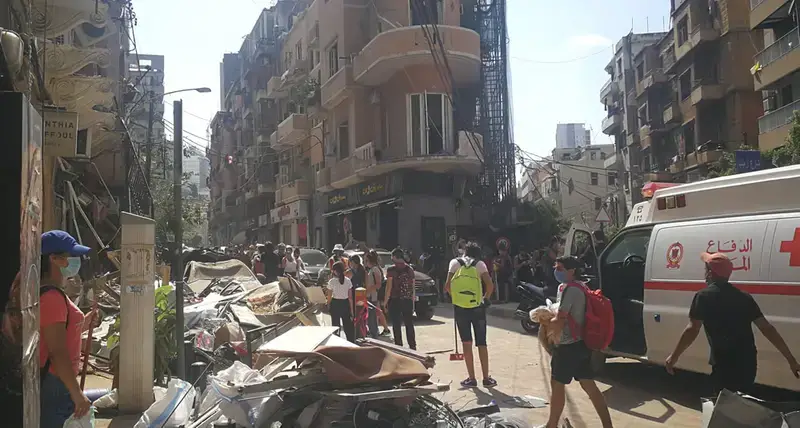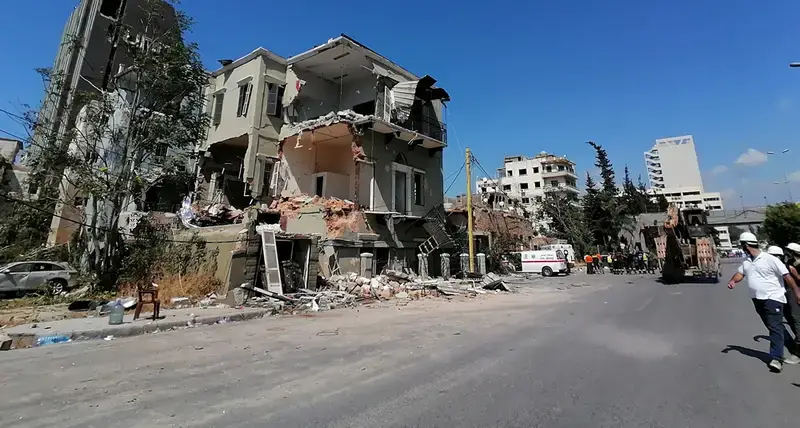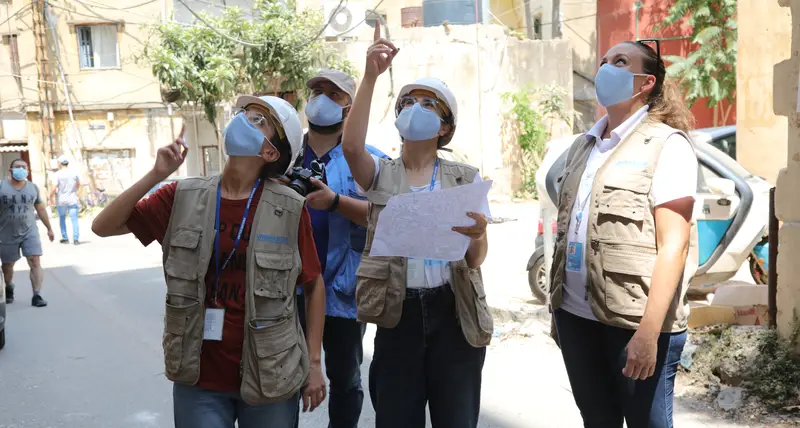Overview
The Beirut Port explosion of 4 August 2020 resulted in devastating loss of life, injury, and the destruction of vast tracts of urban fabric within Greater Beirut, particularly within the municipalities of Beirut and Bourj Hammoud. Vast building and housing stock were damaged – at varying levels – ranging from minor repairs, substantial repairs, structural repairs, and some beyond repair. It is estimated that more than 300,000 people were directly impacted by the blast, including 60,000 families whose homes were damaged, with thousands displaced due to being evacuated following severe structural damages to their homes.
The housing rehabilitation project funded by the International Islamic Charitable Organization (IICO) and implemented by UN-Habitat is supporting vulnerable families in Nabaa, Bourj Hammoud to restore their homes which were damaged by the explosion – specifically through the provision of funds for minor rehabilitation and repairs. The project will restore a minimum of 100 housing and reach approximately 500 direct beneficiaries.


